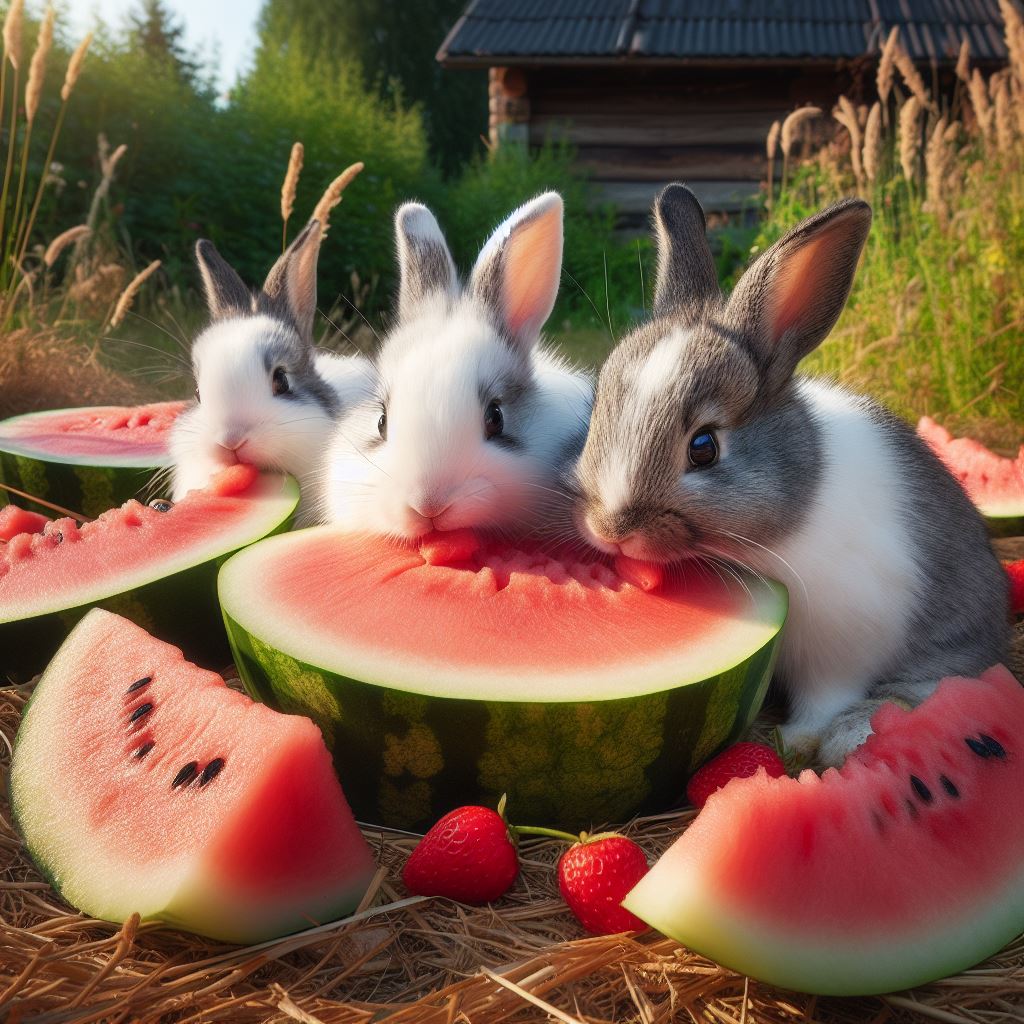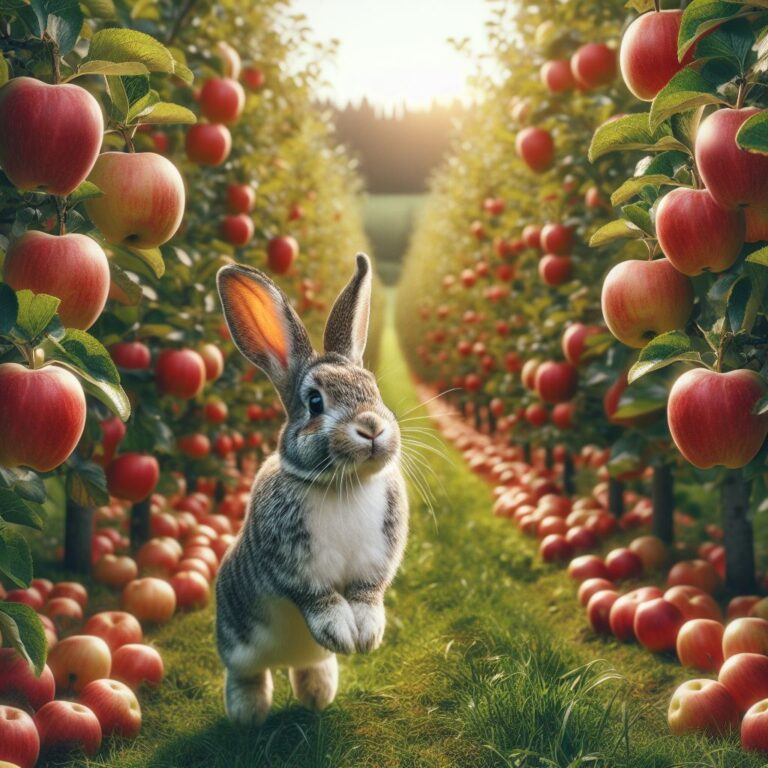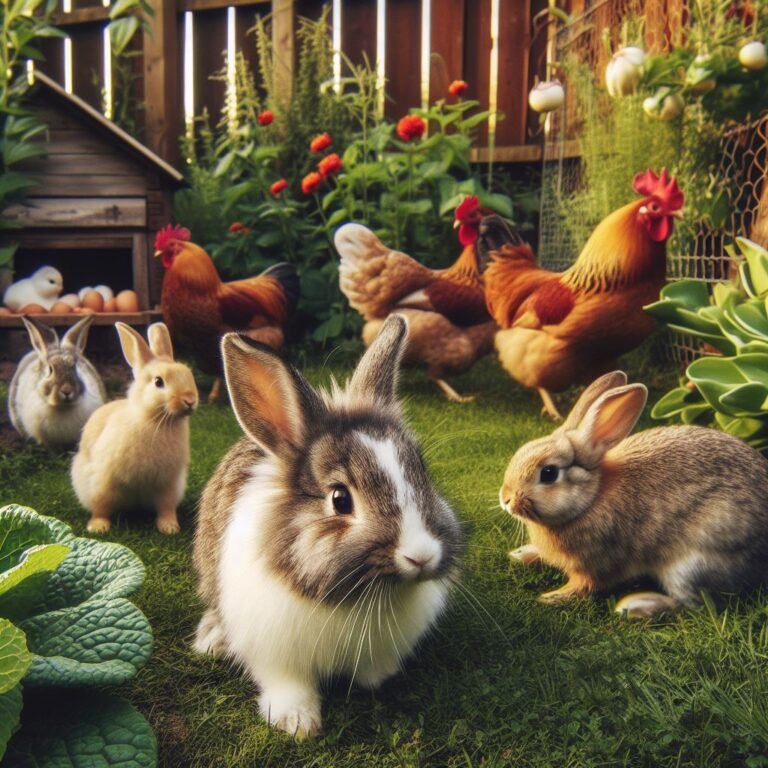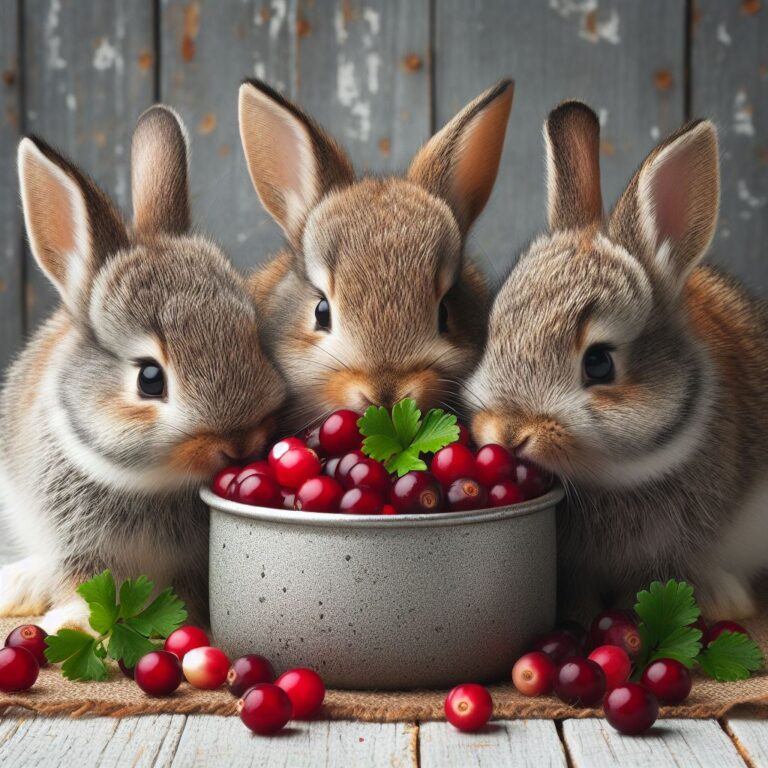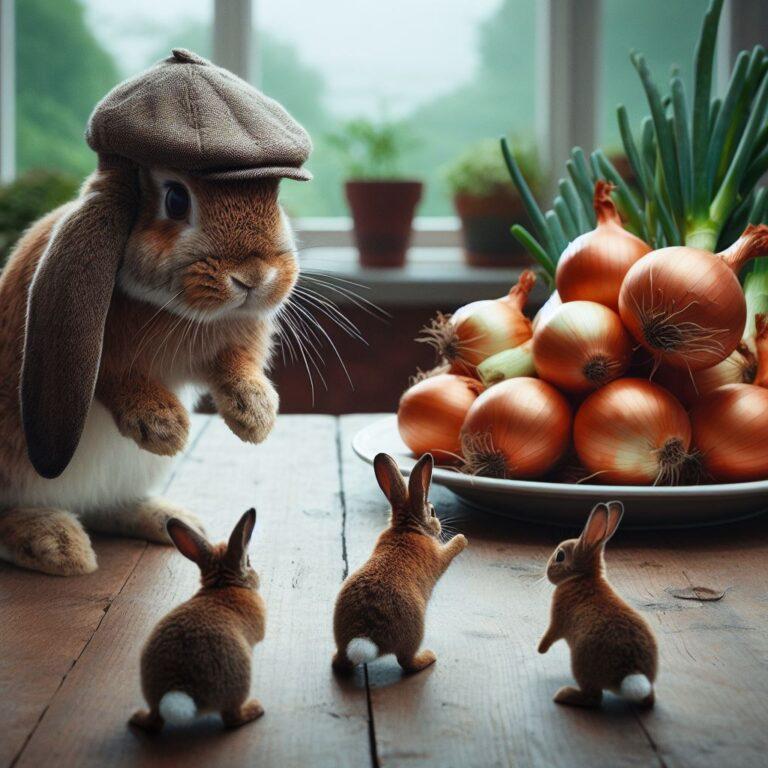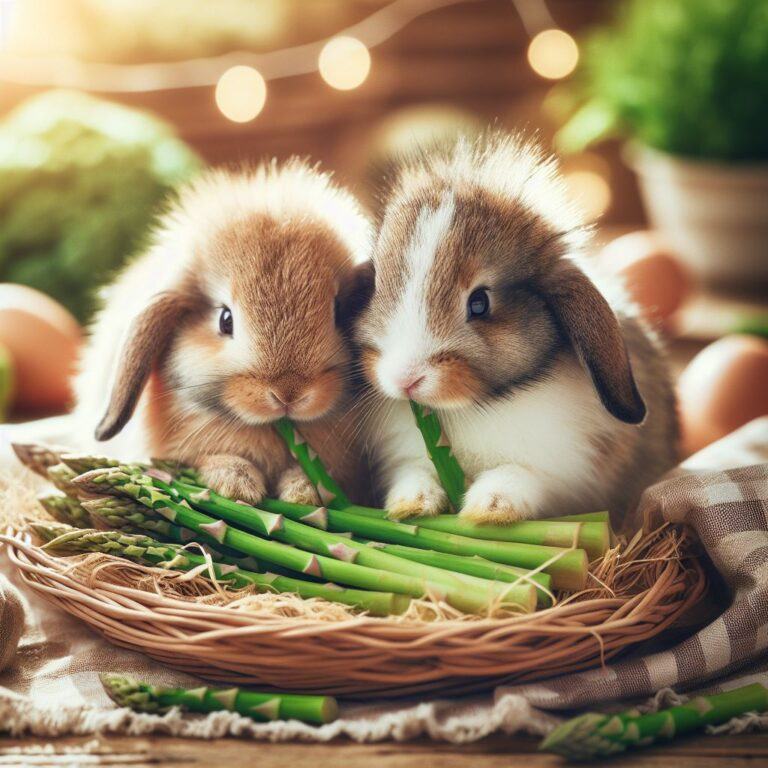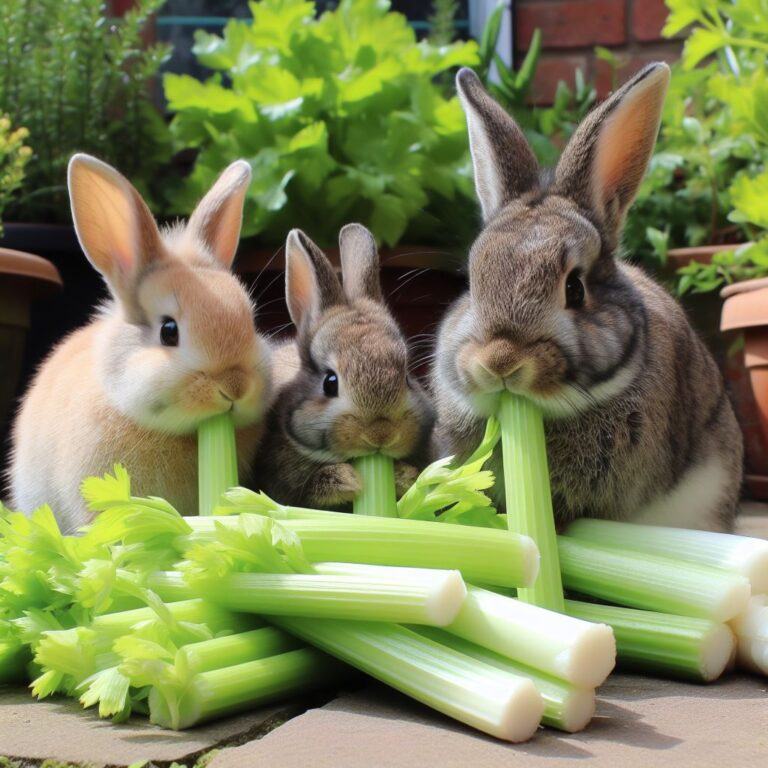Can Rabbits Safely Eat Watermelon
Yes, rabbits CAN safely nibble on watermelon, but in moderation. This juicy fruit contains vitamins such as vitamin C and vitamin A, as well as antioxidants and hydration, all of which can be beneficial for rabbits. However, the high water and sugar content in watermelon should prevent it from becoming a dietary staple.
The key here is ‘in moderation’. That means offering small amounts of watermelon flesh only occasionally to prevent health problems such as gastrointestinal upset or diabetes due to its sugar content.
Giving your rabbit too large a piece can lead to diarrhea or weight gain.
Stick to small pieces of watermelon flesh, avoiding the seeds and rind, to ensure the safety of your pet. It’s advisable to observe how your rabbit reacts to a new treat like watermelon and adjust accordingly.
Understanding the role of fruits, such as watermelon, alongside hay, vegetables, and pellets, ensures a well-rounded nutritional plan for your bunny.
The Role of Fruits in a Rabbit’s Diet
A rabbit’s diet should be primarily composed of hay, which provides the essential fiber they need for a healthy digestive system.
Pellets, fresh vegetables like green beans, broccoli, or courgette, and water are also crucial components. While rabbits can enjoy fruits like watermelon, these should be considered an occasional treat rather than a staple.
Watermelon, for instance, contains vitamins such as vitamin C and vitamin A, which are beneficial to a rabbit’s health in small amounts.
However, it’s also high in sugar and water content. The sugar can lead to obesity and dental problems if consumed in excess, and the high water content might cause digestive issues such as diarrhea.
Overfeeding watermelon or any fruit can offset the balance of nutrients a rabbit needs. This can lead to weight gain and digestion issues, which are serious concerns for rabbits.
Regular monitoring of a rabbit’s weight and stool can help catch any adverse effects early.
It’s essential to introduce any new food, including watermelon, slowly to a rabbit’s diet. This approach allows you to observe your pet for any signs of intolerance or digestive upset.
Begin with small amounts once or twice a week and monitor your rabbit’s health response.
Feeding Your Rabbit Watermelon and What to Look Out For
I must stress, that if you’re considering treating your furry friend to a slice of watermelon, start slowly. Introduce a small piece, no larger than your small fingernail, to see how your rabbit reacts.
This slow introduction helps their digestive system adapt and reduces the risk of any adverse effects.
Keep a watchful eye for any signs of digestive discomfort after feeding your rabbit watermelon. Look for changes in stool consistency, reduced appetite, or lethargy, which could be indicators that the fruit isn’t sitting well with them.
If you notice any of these symptoms, it’s best to remove watermelon from their diet and consult a veterinarian.
Do not make watermelon, or any fruit, for that matter, a staple of your rabbit’s diet. These should be OCCASIONAL treats, and I cannot emphasize this enough.
The mainstay of a rabbit’s diet should be hay, complemented with fiber-rich pellets and a variety of leafy greens.
When it does come to treat time, ensure that the watermelon is ripe, fresh, and free of seeds, as the seeds can be a choking hazard or cause intestinal blockage.
The rind, although not toxic, is tough and difficult for rabbits to digest, therefore, offer the soft, pink flesh only, avoiding the green parts.
While rabbits can safely enjoy watermelon in moderation, it’s crucial to follow these guidelines for portion size and frequency.
Watermelon, while refreshing, is high in sugars and should remain a rare delight to prevent health complications in your rabbit’s diet.

